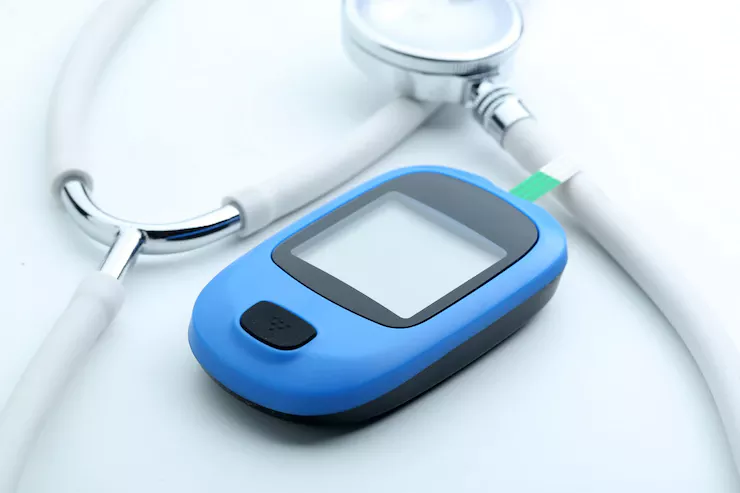Diabetes is a medical condition that results from a lack of insulin produced by the pancreas or inadequate use of insulin by the body. Insulin regulates blood sugar levels. High blood sugar causes diabetes.
Glucose is the primary source of energy in the body, derived from food. Insulin helps glucose from the food enter your cells for energy production. There is an underlying cause for each type of diabetes. Diabetes can lead to excess blood sugar levels no matter what type you have. A high blood sugar level can have serious health consequences.
Type1 diabetes usually appears during childhood or adolescence. Over 40-year-olds are more likely to develop type 2 diabetes. Gestational diabetes occurs during pregnancy.
At Specialty Care Clinics, we are dedicated to preserving and enhancing human life. We offer the best pain management services in Texas and are located in 11 places in the US.
TYPES OF DIABETES:
Diabetes can be classified as Type 1, Type 2, and Gestational Diabetes
1. Which diabetes needs insulin? – Type 1 Diabetes
An individual with type 1 diabetes (previously known as insulin-dependent, juvenile, or childhood-onset diabetes) requires daily insulin injections.Individuals with type 1 diabetes are incapable of producing insulin. Insulin cannot be taken as a pill. Your stomach acid would destroy it before it could enter your bloodstream.
You will also need to keep track of your blood sugar levels regularly.
2. The most common type of diabetes is Type 2 Diabetes
The body’s inability to use insulin causes type 2 diabetes (formerly called non-insulin-dependent diabetes or adult-onset diabetes). It is the most common form of diabetes, and over 95% of people with diabetes have type-2 diabetes.
In the past, this type of diabetes was only a problem for adults, but children are increasingly suffering from it as well. Losing weight, eating well, and exercising can help you manage type 2 diabetes.
3. Diabetes in Pregnancy – Gestational Diabetes
Your blood sugar levels rise during pregnancy if you have gestational diabetes. Hormones affect how insulin works during pregnancy. Your blood sugar levels might not be managed properly, resulting in gestational diabetes.
Diabetes can damage the heart, kidneys, eyes, and nerve vessels. Healthy eating and exercise can help some people control their blood glucose levels, but others may require insulin or medication.
SYMPTOMS OF DIABETES
Diabetes symptoms vary depending on your blood sugar level. As a result of type 1 diabetes, symptoms usually develop quickly and are more severe. While type 2 diabetes, complications exhibit much more gradually, and sometimes no signs are visible at all. Many women also have no noticeable symptoms of gestational diabetes. Common symptoms include:
- Increased thirst and urination
- Increased/extreme hunger
- Blurred vision
- Fatigue
- Unexplained weight loss
- Slow-healing sores
- Numbness in the hands or feet
A diabetes diagnosis and treatment at an early stage can reduce complications.
CAUSES OF DIABETES
Type1
Type 1 diabetes has no known cause. The immune system attacks the insulin-producing cells in the pancreas, resulting in a lack of insulin. As opposed to transporting sugar into your cells, sugar builds up in your bloodstream, which leads to dehydration, weight loss, and damage to your body.
Type2
Type 2 diabetes occurs when your cells become resistant to insulin, and your pancreas cannot produce enough insulin to overcome this resistance. As opposed to moving into your cells, sugar builds up in your bloodstream.
RISK FACTORS OF DIABETES:
Risk factors for type1 diabetes include
- Family history – Your chances of diabetes increase if someone from your family (parent/ sibling) has diabetes.
- The presence of damaging immune system cells
- Environmental factors – In cold climates, type 1 diabetes is more prevalent.
Certain factors that increase the risk of type 2 diabetes include:
- Weight – Obesity is a major risk
- Inactivity- Inactivity increases your risk of type 2 diabetes
- Family history – Your chances of diabetes increase if someone from your family (parent/ sibling) has diabetes
- Age – Your risk of diabetes increases with age, especially after 45yrs
- High BP
According to doctors, 2% to 10% of pregnancies, have gestational diabetes
Risk factors for developing gestational diabetes include:
- Being overweight
- Family history
- Certain ethnicities
- Having PCOS (Polycystic Ovary Syndrome)
- Pregnant with gestational diabetes in the past
PREVENTION OF DIABETES- HOW TO STOP DIABETES BEFORE IT STARTS?
The prevention of type 1 diabetes is not known at this time. Nevertheless, researchers are working on preventing the disease or further damage to the islet cells in newly diagnosed patients.
Type 2 diabetes can be prevented by adopting a healthy lifestyle: Lose weight, get active, eat right- take a healthy diet. Manage your carb intake and eat more fiber.
The greatest way to reduce your chance of developing gestational diabetes is to maintain good health and get your body ready for pregnancy.
We at Specialty Care Clinics try our best possible high-quality treatment to patients. Various specialty treatments are available under one roof. We will provide quality care.
Your health is our top priority. You can call us on 469-545-9983 if you have any queries or want to book an appointment. We also provide Telehealth consultations. We are here to help.




